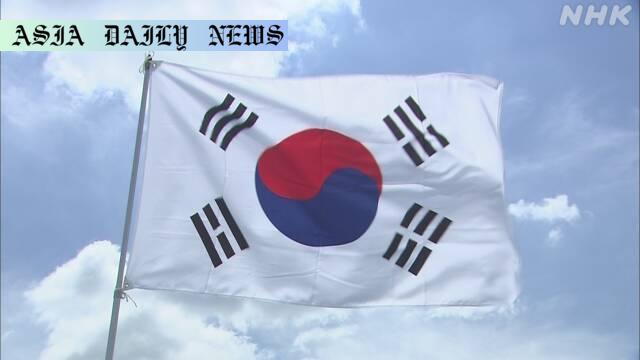South Korea Presidential Election: Former labor minister Kim Moon-soo and ex-party leader Han Dong-hoon vie for PPP’s nomination.

South Korea Presidential Election and Political Dynamics
South Korea’s political landscape has been thrust into focus as the ruling People Power Party (PPP) announced its narrowing of presidential nominees to two key figures: Kim Moon-soo, a former employment and labor minister, and Han Dong-hoon, an ex-leader of the PPP. This significant announcement comes ahead of the presidential election scheduled for June 3, a pivotal moment for the country after the Constitution Court upheld the impeachment of former President Yoon Suk-yeol in April. The PPP has strategized to select its eventual nominee through an official vote this Saturday, further escalating political anticipation.
The decision-making process for selecting the PPP’s candidate will include various components such as debate sessions. On Wednesday, both Kim Moon-soo and Han Dong-hoon are slated to engage in a public debate session. This strategy ensures party members and citizens can gauge the vision and capabilities of both contenders as they compete to lead the nation in the post-Yoon era.
The Opposition’s Strategy: Controversy Surrounding Lee Jae-myung
Meanwhile, South Korea’s main opposition, the Democratic Party of Korea (DPK), has officially elected former party leader Lee Jae-myung as its presidential nominee. Though Lee has garnered widespread public support and consistently leads opinion polls ahead of the ruling party’s contenders, his candidacy is marred by legal complications. Accusations of violating the country’s election laws have cast a shadow over his campaign. The Supreme Court is expected to deliver a crucial ruling on Thursday, a decision with potential ramifications on his race for the executive office. Despite the legal hurdles, Lee’s robust campaign underscores the divided political climate in South Korea as it inches closer to a critical election date.
Unsettled Waves in the Political Arena
Aside from the primary presidential race, speculations swirl around whether Prime Minister Han Duck-soo may enter the elections independently. While conservative factions within the PPP seem intrigued by this prospect, others remain skeptical about the ripple effect it could have within the ruling party. Reports suggest that Prime Minister Han might resign by late this week to announce his candidacy formally. His decision to enter the race would inevitably shift voter dynamics and potentially fractalize the PPP’s voter base.
Anticipating the Political Outcomes
The upcoming election is pivotal not only for South Korea’s national policies but also for its standing on the global stage. With the PPP eyeing a rebound from Yoon Suk-yeol’s impeachment, and the DPK dealing with internal controversies surrounding its candidate, both parties are at a crossroads. The election’s eventual outcome will likely set trajectories for foreign policy, economic reforms, and societal change within South Korea. Observers and stakeholders await decisive plays from both the ruling and opposition factions, each with its unique challenges and opportunities leading up to June 3.
Commentary
The Contentious Presidential Race: Analyzing the Prospects
As South Korea barrels toward its June 3 presidential election, the political climate is becoming increasingly charged. With the People Power Party narrowing down their nominees to Kim Moon-soo and Han Dong-hoon, the race speaks volumes about the search for stability after a tumultuous impeachment saga. Kim’s experience as labor minister contrasts sharply with Han’s tenure as the party’s leader, presenting voters and PPP members with two starkly different leadership styles. These differences could influence how the party envisions governing in a post-impeachment era.
The Opposition’s Gambit: High Polls but Higher Risks
The Democratic Party of Korea, on the other hand, appears to have bet heavily on Lee Jae-myung despite his ongoing legal challenges. Lee’s commanding lead in the polls doesn’t erase the doubts surrounding his candidacy. Legal troubles can seriously undermine public trust, particularly if they escalate or linger into the campaign season. This decision to stand by Lee illustrates the DPK’s confidence in his ability to overcome adversity; however, it simultaneously amplifies the stakes involved in their political gamble. A Supreme Court ruling against Lee could derail their campaign altogether.
Uncertainty and Opportunities: Beyond the Main Contenders
Adding further intrigue to an already dramatic political scene is the possibility of an independent bid by Prime Minister Han Duck-soo. If this comes to fruition, Han’s candidacy may fragment conservative votes, potentially weakening the People Power Party’s overall chances. Such a move would inject unpredictability into an already volatile election process, raising further questions about how alliances and rivalries will shape South Korea’s political future. Observing these developments reveals the balance of calculated strategy and sheer unpredictability shaping this year’s historic presidential race.


